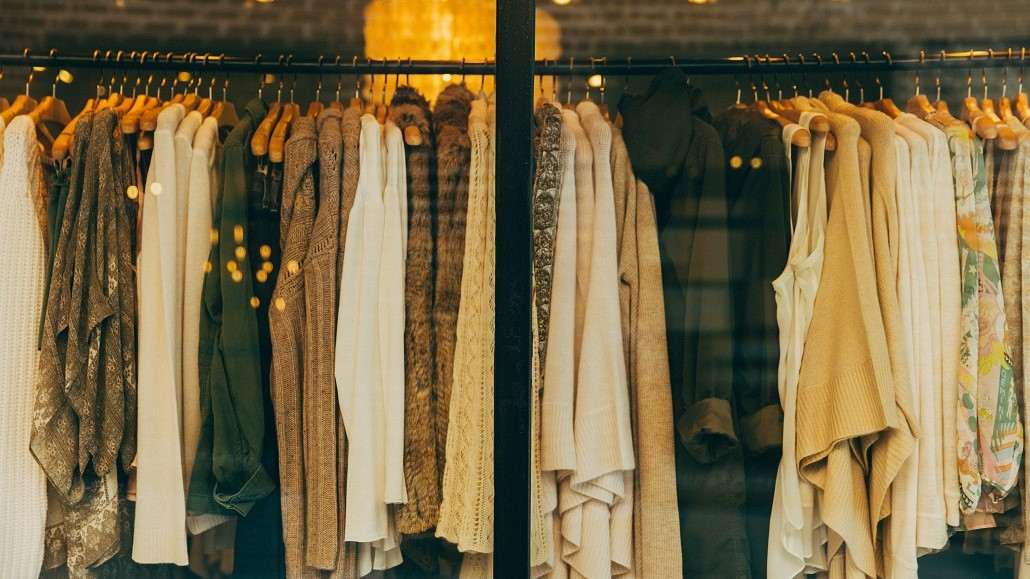In the fiercely competitive global fashion landscape, UK brands are increasingly leaning on three crucial pillars—heritage, sustainability, and provenance—to justify premium pricing and navigate challenges like rising US tariffs and ongoing market disruptions. This strategic combination not only enhances the appeal of British apparel but also communicates significant value to discerning global buyers, ensuring that elements like quality, history, and ethical responsibility remain key selling points, even as traditional competitive edges diminish.
At the core of British fashion’s lasting allure is its rich heritage. Esteemed brands such as Burberry, Barbour, and Johnstons of Elgin embody centuries of craftsmanship, resilience, and iconic design. The authenticity ingrained in their histories sets UK products apart from mass-produced fast fashion, enabling these brands to maintain higher prices even in cost-sensitive markets like the United States. For instance, Burberry’s timeless trench coat not only symbolizes British elegance but also reflects the innovative spirit of Thomas Burberry, who pioneered gabardine in the 19th century. Today, Burberry enjoys strong favor among US luxury consumers, where its premium pricing is justified by both provenance and a consistent narrative tied to British culture. This showcases the impact of heritage and sustainability in UK fashion, highlighting how historical narratives can elevate brand value.
Barbour, renowned for its waxed jackets since 1894, exemplifies how heritage intersects practicality and luxury. Despite its global expansion, Barbour’s commitment to “Made in England” cultivates a perception of unmatched quality and tradition. Their royal warrants further enhance prestige, while endorsements from celebrities and British royalty fortify Barbour’s uniquely British identity. Even with US tariffs on UK apparel increasing from roughly 5% to nearly 15%, Barbour leverages its heritage to justify elevated pricing, transforming what could be seen as a disadvantage into an aspirational benefit.
Sustainability is emerging as another critical component of the UK’s fashion advantage. Increasing environmental awareness drives British brands to adopt transparent, circular production methodologies that resonate with modern consumers’ expectations. Johnstons of Elgin, operating since 1797, stands as an exemplar of responsible luxury. By sourcing natural fibers with careful stewardship and maintaining production within Scotland to minimize environmental impact, it positions its premium pricing as aligned with its environmental responsibilities and unique narrative.
Emerging brands like Holland Cooper are also making significant strides by fusing heritage aesthetics with sustainability goals. Founded in 2008, Holland Cooper uses locally sourced materials and supports domestic manufacturing, bolstering supply chain transparency and benefiting the local economy. Their carefully cultivated ambassadorial relationships with figures from British royalty to key influencers strengthen the dual promise of classic British style alongside a sustainable future.
The focus on sustainability directly responds to shifting consumer priorities, particularly among US and European buyers who are increasingly willing to pay more for products with proven environmental credentials. The “buy less, buy better” mentality is reshaping the fashion landscape, as UK brands align practices like localism and responsible sourcing with their storied narratives. This synergy between heritage and sustainable innovation is significant; research indicates that UK designers embracing best-practice sustainability achieve greater price resilience and brand loyalty. This further emphasizes the impact of heritage and sustainability in UK fashion, as brands leverage their historical contexts to enhance their environmental commitments.
Provenance plays a vital role by supporting heritage and sustainability while offering buyers assurances of authenticity and ethical practices. As global consumers, particularly in the US, become more wary of greenwashing and counterfeit items, provenance acts as a form of guarantee—a detailed account of how, where, and by whom each product was made. British brands employ various certifications, from “Made in England” labels to organic verifications, to distinguish themselves from mass-market competitors and cultivate customer trust.
As UK exporters navigate increased tariffs and a shifting trade landscape, emphasizing heritage, sustainability, and provenance proves not only to be a defensive move but a proactive strategy. US buyers, faced with rising costs for British imports, are likely to pay premiums for products that offer compelling stories and demonstrable quality. In certain high-value segments, a transition away from price competition towards brand differentiation is observable. Dutch and German exporters, similarly dealing with uncompetitive tariffs, have found success by repositioning their textiles as premium, specialized, and environmentally friendly.
In practical terms, this strategic focus is illustrated by brands like Burberry, which reinforces its position and pricing by aligning with British innovation and culture while significantly investing in sustainable practices. Johnstons of Elgin’s traceable Scottish production and artisanal methods allow it to thrive in a challenging market, catering to US luxury consumers who value uniqueness and integrity. Holland Cooper’s emphasis on classic British aesthetics, local manufacturing, and sustainable sourcing appeals to global buyers willing to pay a premium for goods backed by solid provenance and ethical impact.
Meanwhile, smaller UK brands are addressing premium pricing challenges by educating consumers about the true cost of ethical and sustainable fashion. The narrative surrounding British-made goods is evolving; consumers are increasingly recognizing that quality and conscience justify higher investments, and UK brands are leveraging their rich histories to promote the value of “British-made fashion.”
In conclusion, the UK’s competitive advantage lies in its storied history while adapting to modern values. Heritage underscores British fashion’s credibility and desirability; sustainability keeps it relevant to emerging consumer priorities; and provenance provides buyers with confidence and transparency. In the face of rising tariffs and global trade pressures, these elements empower UK brands to differentiate themselves, command respect, and maintain premium pricing in the most discerning markets. As consumers increasingly make mindful fashion choices, the blend of tradition, responsibility, and transparency within the British fashion industry emerges not only as a survival strategy but also as a blueprint for sustained leadership in the market.

































